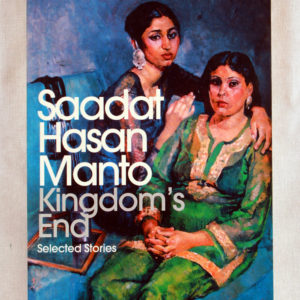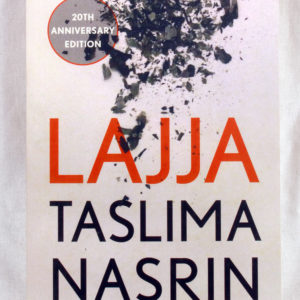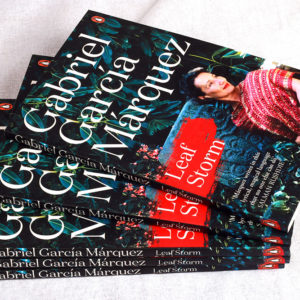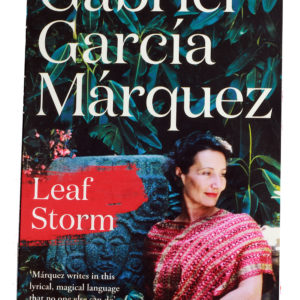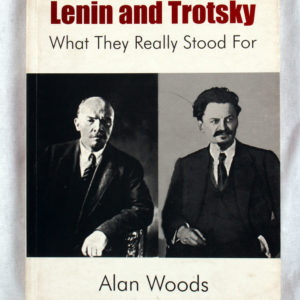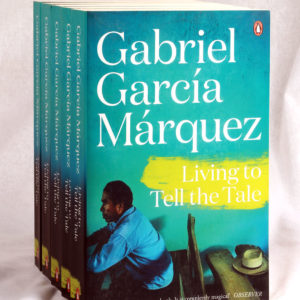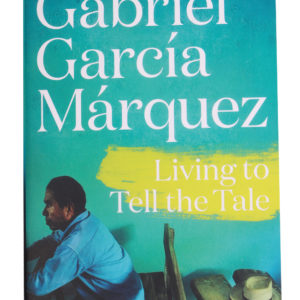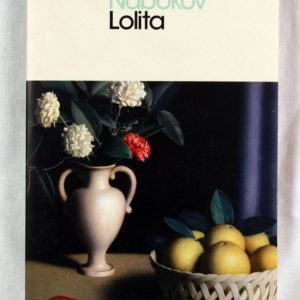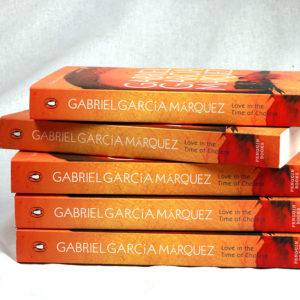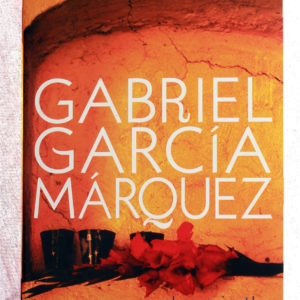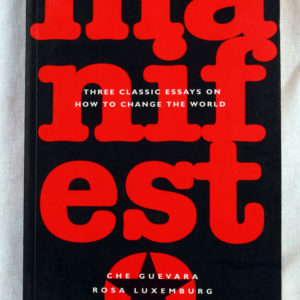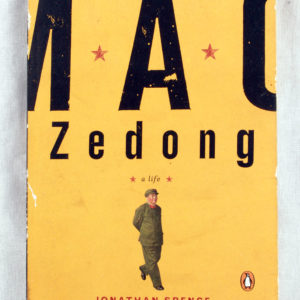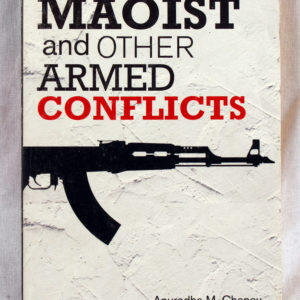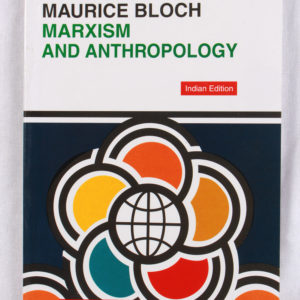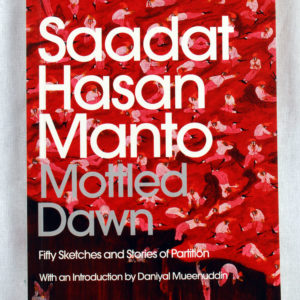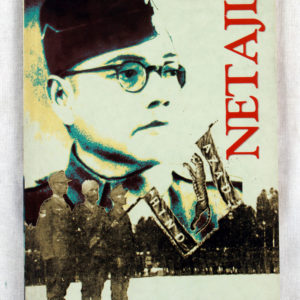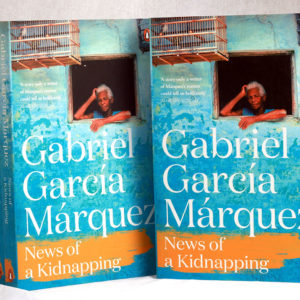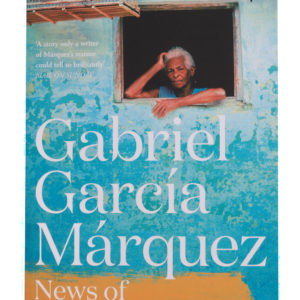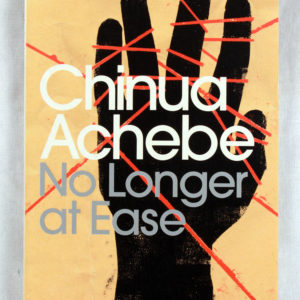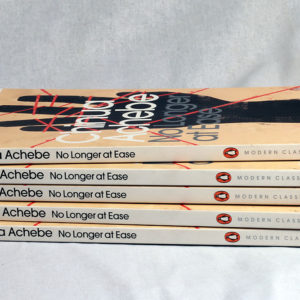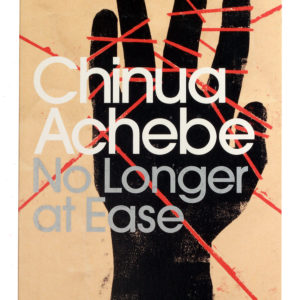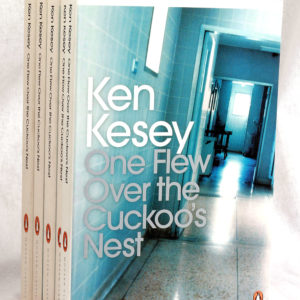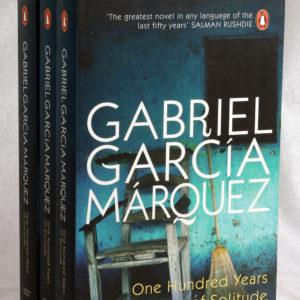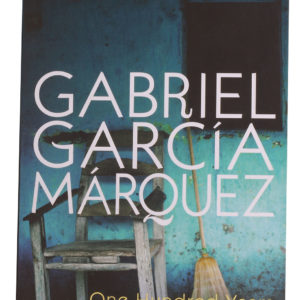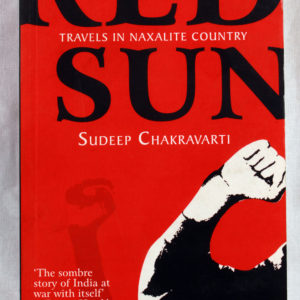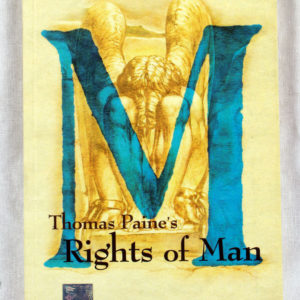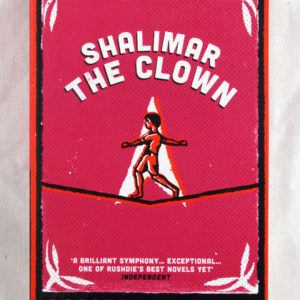Filter
A savage indictment of religious extremism and man s inhumanity to man, Lajja was banned in Bangladesh but became a bestseller in the rest of the world. This brand-new translation marks the twentieth anniversary of this controversial novel.
The Dattas Sudhamoy and Kironmoyee, and their children, Suronjon and Maya have lived in Bangladesh all their lives. Despite being members of a small Hindu community that is terrorized at every opportunity by Muslim fundamentalists, they refuse to leave their country, unlike most of their friends and relatives. Sudhamoy believes with a naive mix of optimism and idealism that his motherland will not let him down. And then, on 6 December 1992, the Babri Masjid at Ayodhya is demolished by a mob of Hindu fundamentalists. The world condemns the incident, but its immediate fallout is felt most acutely in Bangladesh, where Muslim mobs begin to seek out and attack the Hindus. The nightmare inevitably arrives at the Dattas doorstep, and their world begins to fall apart.
‘SUDDENLY, AS IF A WHIRLWIND HAD SET DOWN ROOTS IN THE CENTRE OF THE TOWN, THE BANANA COMPANY ARRIVED, PURSUED BY THE LEAF STORM’
As a blizzard of warehouses and amusement parlours and slums descends on the small town of Macondo, the inhabitants reel at the accompanying stench of rubbish that makes their home unrecognisable. When the banana company leaves town as fast as it arrived, all they are left with is a void of decay.
Living in this devastated and soulless wasteland is one last honourable man, the Colonel, who is determined to fulfil a long standing promise, no matter how unpalatable it may be. With the death of the detested Doctor, he must provide an honourable burial – and incur the wrath of the rest of Macondo, who would rather see the Doctor rot, forgotten and unattended.
This Ideas Of Lenin And Trotsky Are Without Doubt The Most Distorted And Slandered In Histoy. For More Than Eighty Years, They Have Been Subjected To An Onslaught From The Apolgists Of Capitalism, Who Have Attempted To Present Their Ideas – Bolshevism – As Both Totalitarian An Utopian. An Entire Industry Was Developed In An Attempt To Equate The Crimes Of Stalinism With The Regime Of Workers’ Democracy That Existed Under Lenin And Trotsky.
Authors : Alan Woods, Ted Grant
Publisher : Aakar Publications
He is perhaps the most acclaimed, revered and widely read writer of our time, and in this first volume of a planned trilogy, Gabriel Garcia Marquez begins to tell the story of his life. Living to Tell the Tale spans Marquez’s life from his birth in 1927 through the beginning of his career as a writer to the moment in the 1950s when he proposed to the woman who would become his wife. It is a tale of people, places and events as they occur to him: family, work, politics, books and music, his beloved Columbia, parts of his history until now undisclosed and incidents that would later appear, transmuted and transposed in his fiction. A vivid, powerful, beguiling memoir that gives us the formation of Marquez as a writer and as a man.
Lolita is a 1955 novel written by Russian-American novelist Vladimir Nabokov. Many authors consider it the greatest work of the 20th century, and it has been included in several lists of best books, such as Time’s List of the 100 Best Novels, Le Monde’s 100 Books of the Century, Bokklubben World Library, Modern Library’s 100 Best Novels, and The Big Read. The novel is notable for its controversial subject: the protagonist and unreliable narrator, a middle-aged literature professor under the pseudonym Humbert Humbert, is obsessed with a 12-year-old girl, Dolores Haze, with whom he becomes sexually involved after he becomes her stepfather. “Lolita” is his private nickname for Dolores. The novel was originally written in English and first published in Paris in 1955 by Olympia Press. Later it was translated into Russian by Nabokov himself and published in New York City in 1967 by Phaedra Publishers.
Lolita quickly attained a classic status. The novel was adapted into a film by Stanley Kubrick in 1962, and another film by Adrian Lyne in 1997. It has also been adapted several times for the stage and has been the subject of two operas, two ballets, and an acclaimed but commercially unsuccessful Broadway musical. Its assimilation into popular culture is such that the name “Lolita” has been used to imply that a young girl is sexually precocious.
In their youth, Florentino Ariza and Fermina Daza fall passionately in love. When Fermina eventually chooses to marry a wealthy, well-born doctor, Florentino is heartbroken, but he is a romantic. As he rises in his business career he whiles away the years in 622 affairs—yet he reserves his heart for Fermina. Her husband dies at last, and Florentino purposefully attends the funeral. Fifty years, nine months, and four days after he first declared his love for Fermina, he will do so again.
With a preface by Adrienne Rich, Manifesto presents the radical vision of four famous young rebels: Marx and Engels’ Communist Manifesto, Rosa Luxemburg’s Reform or Revolution and Che Guevara’s Socialism and Humanity.
‘Spence draws upon his extensive knowledge of Chinese politics and culture to create an illuminating picture of Mao. . . . Superb.’ (Chicago Tribune) From humble origins in the provinces, Mao Zedong rose to absolute power, unifying with an iron fist a vast country torn apart by years of weak leadership, colonialism, and war. This sharply drawn and insightful account brings to life this modern-day emperor and the tumultuous era that he did so much to shape.
Jonathan Spence captures Mao in all his paradoxical grandeur and sheds light on the radical transformation he unleashed that still reverberates in China today.
One-sixth of all Indians today live in areas of armed conflict. Seeking solutions, this book is a holistic examination of present armed conflicts as well as the past ones in Punjab and Mizoram, illuminating their common roots, as well as the responses of the state and civil society. The authors show how insurgencies are propelled by a complex mix of issues: the denial of justice and rights, identity concerns, and the breakdown of the social and symbolic order, rather than merely poverty and lack of education. Draconian laws like the Armed Forces (Special Powers) Act and measures like encounters, crackdowns and Salwa Judum aggravate the sense of collective victimhood and feelings of alienation from the national community.
This book examines the uses made of anthropology by Marx and Engels, and the uses made of Marxism by anthropologists. Looking at the writings of Marx and Engels on primitive societies, the book evaluates their views in the light of present knowledge and draws attention to inconsistencies in their analysis of pre-capitalist societies. These inconsistencies can be traced to the influence of contemporary anthropologists who regarded primitive societies as classless. As Marxist theory was built around the idea of class, without this concept the conventional Marxist analysis foundered.
First published in 1983.
This book extends the theme of Raymond Williams’s earlier work in literary and cultural analysis. He analyses previous contributions to a Marxist theory of literature from Marx himself to Lukacs, Althusser, and Goldmann, and develops his own approach by outlining a theory of `cultural materialism’ which integrates Marxist theories of language with Marxist theories of literature. Williams moves from a review of the growth of the concepts of literature and idealogy to a redefinition of `determinism’ and `hegemony’. His incisive discussion of the ‘social material process’ of cultural activity culminates in a re-examination of the problems of alignment and commitment and of the creative practice in individual authors and wider social groups.
Mottled Dawn Is A Collection Of Saadat Hasan Manto S Most Powerful Pieces On The Partition Of The Subcontinent Into India And Pakistan In 1947. The Book Includes Unforgettable Stories Like Toba Tek Singh , The Return , The Assignment , Colder Than Ice And Many More, Bringing Alive The Most Tragic Event In The History Of The Indian Subcontinent.
A concise biography of Netaji Subhas Chandra Bose meant for the young. The book will help to inculcate in the rising generation the basic human qualities like partriotism, national unity, self-sacrifice, courage and a concern for the poor of which Netaji was the shining example.
Krishna Bose is an eminent writer, educationist and parliamentarian. Educated at Calcutta University, she taught for 40 years at the City College of Calcutta where she was Head of the Department of English and for 8 years the Principal. She is a leading contemporary writer of Calcutta.
THIS ASTONISHING BOOK by the Nobel laureate Gabriel García Márquez chronicles the 1990 kidnappings of ten Colombian man and women–all journalists but one–by the Medellín drug boss Pablo Escobar. The carefully orchestrated abductions were Escobar’s attempt to extort from the government its assurance that he, and other narcotics traffickers, would not be extradited to the United States if they were to surrender.
No Longer at Ease is a 1960 novel by Nigerian author Chinua Achebe. It is the story of an Igbo man, Obi Okonkwo, who leaves his village for an education in Britain and then a job in the Nigerian colonial civil service, but is conflicted between his African culture and Western lifestyle and ends up taking a bribe. The novel is the second work in what is sometimes referred to as the “African trilogy”, following Things Fall Apart and preceding Arrow of God. Things Fall Apart concerns the struggle of Obi Okonkwo’s grandfather Okonkwo against the changes brought by the English.
Tyrannical Nurse Ratched rules her ward in an Oregon State mental hospital with a strict and unbending routine, unopposed by her patients, who remain cowed by mind-numbing medication and the threat of electric shock therapy. But her regime is disrupted by the arrival of McMurphy – the swaggering, fun-loving trickster with a devilish grin who resolves to oppose her rules on behalf of his fellow inmates. His struggle is seen through the eyes of Chief Bromden, a seemingly mute half-Indian patient who understands McMurphy’s heroic attempt to do battle with the powers that keep them imprisoned. Ken Kesey’s extraordinary first novel is an exuberant, ribald and devastatingly honest portrayal of the boundaries between sanity and madness.
The brilliant, bestselling, landmark novel that tells the story of the Buendia family, and chronicles the irreconcilable conflict between the desire for solitude and the need for love—in rich, imaginative prose that has come to define an entire genre known as “magical realism.”
Purple Hibiscus is set in postcolonial Nigeria, a country beset by political instability and economic difficulties. The central character is Kambili Achike, aged fifteen for much of the period covered by the book, a member of a wealthy family dominated by her devoutly Catholic father, Eugene. Eugene is both a religious zealot and a violent figure in the Achike household, subjecting his wife Beatrice, Kambili herself, and her brother Jaja to beatings and psychological cruelty.
The story is told through Kambili’s eyes and is essentially about the disintegration of her family unit and her struggle to grow to maturity. A key period is the time Kambili and her brother spend at the house of her father’s sister, Ifeoma, and her three children. This household offers a marked contrast to what Kambili and Jaja are used to. It practices a completely different form of Catholicism, making for a happy, liberal place that encourages its members to speak their minds. In this nurturing environment, both Kambili and Jaja become more open and more able to voice their own opinions. While at Aunty Ifeoma’s, Kambili also falls in love with a young priest, Father Amadi, which awakens her sense of her own sexuality.
Purple Hibiscus is an exquisite novel about the emotional turmoil of adolescence, the powerful bonds of family, and the bright promise of freedom.
In 1967, Naxalbari, a village in West Bengal, became the centre of a Mao inspired militant peasant uprising guided by firebrand intellectuals. Today, Naxalism is no longer the Che Guevara-style revolution that it was. Spread across 15 of India’s 28 states, it is one of the world’s biggest, most sophisticated extreme-Left movements, and feeds off the misery and anger of the dispossessed. Since the late 1990s, hardly a week has passed without people dying in strikes and counter-strikes by the Maoists – interchangeably known as the Naxalites – and police and paramilitary forces.
In this disturbing examination of the ‘Other India’, Sudeep Chakravarti combines political history extensive interviews and individual case histories as he travels to the heart of Maoist zones in the country: Chhattisgarh (home to the controversial state-sponsored Salwa Judum programme to contain Naxalism), Jharkhand, West Bengal, Karnataka and Andhra Pradesh (where a serving chief minister was nearly killed in a landmine explosion triggered by the Naxalites). He meets Maoist leaders and sympathizers, policemen, bureaucrats, politicians, security analysts, development workers, farmers and tribals – people, big and small, who comprise the actors and the audience in this war being fought in jungles and impoverished villages across India. What emerges is a sobering picture of a deeply divided society, and the dangers that lie ahead for India.
Revolutionaries is vintage Hobsbawm, written masterfully amid one of the century’s most intense periods of political and social upheaval, putting those events in historical context. Few observers were as astute as Hobsbawm at probing, criticizing, and clarifying radical movements, whether in Beijing or Berkeley. Ranging from historical investigations into communism to contemporary appraisals of revolutionary movements and meditations on Marxism, Hobsbawm’s commentaries are essential guides to ideas and people that changed the face of the twentieth century.
Rights of Man (1791), a book by Thomas Paine, including 31 articles, posits that popular political revolution is permissible when a government does not safeguard the natural rights of its people. Using these points as a base it defends the French Revolution against Edmund Burke’s attack in Reflections on the Revolution in France (1790).
It was published in two parts in March 1791 and February 1792.
Shalimar the Clown is a 2005 novel by Salman Rushdie. The novel took Rushdie four years to write, and was initially published on 6 September 2005 by Jonathan Cape. Shalimar the Clown derives its name from Shalimar Gardens, in the vicinity of Srinagar. Srinagar is one of several Mughal Gardens, which were laid out in several parts of undivided India when the Mughals reigned over the subcontinent. Shalimar is also the name of one of the characters featured in the novel. Shalimar the Clown won the 2005 Vodafone Crossword Book Award and was one of the finalists for the 2005 Whitbread Book Awards.

